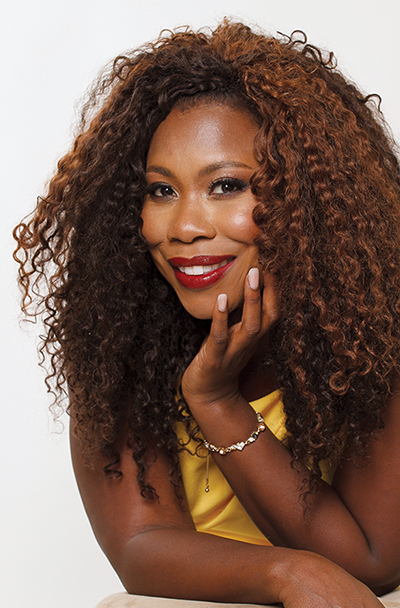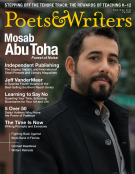The business of literary representation is evolving quickly (hello, AI!), and amid all the changes and challenges—how to handle changing contracts, the ethics of commissions, managing rights and royalties—agents need guidance and community. Enter the Association of American Literary Agents (AALA), a nonprofit membership organization formed in 1991 through the merger of the Independent Literary Agents Association and the Society of Authors’ Representatives, which had been founded in 1928. This past summer the organization elected a new president, Regina Brooks, a longtime agent herself, who founded Serendipity Literary Agency in 2000. Brooks recently spoke about the state of agenting today, what writers misunderstand about the role of the agent, and the numerous irons she has in the literary fire.

How did you become an agent?
I studied engineering and wanted to be an astronaut, but I had a summer off, and I went to the six-week Howard University Publishing Institute program because it sounded interesting. I met some incredible people. I was like, oh, maybe I’ll take a year off. I started in sales at John Wiley & Sons. After a year, they moved me to New York and I became an editor, working on engineering textbooks. Then I went to McGraw Hill to work on computing books. Then I started my agency. I didn’t realize how much I was going to love this industry.
How did you become involved in the AALA, and what does it do, exactly?
I’ve been a member since 2002 and on the board since 2019. At that time, it was the Association of Author Representatives, but we changed the name—nobody says they’re looking for an “author representative.” It just sounded so legacy. I helped start the communications committee and was involved in the DEI committee. I became vice president, now president. We’re dedicated to creating an environment where agents can thrive. One of our biggest roles is upholding the highest ethical standards in literary representation. We’re a supportive organization that focuses on professional development and education.
Agenting has been a predominantly white profession for decades. Is the association hoping to change that?
Absolutely. Until three years ago, you had to be nominated into the organization; it was exclusive, and it didn’t allow for people who were newer in the business or who didn’t know anyone to easily become a member. We shifted our membership model to one that’s more inclusive, giving the opportunity for more diverse agents and younger agents to take part. It shouldn’t be a country club.
When you talk about educating agents, what do you mean?
We want to make sure that agents can provide the best counsel and representation to their authors. As you can imagine, there’s so much happening in the world of publishing, especially relating to rights and contracts. AI is a great example. Where are agents supposed to go for guidance? Recently we did a panel at the U.S. Book Show dedicated to book sales; we brought in sales directors to talk about that process. You want to give them books they can sell, but you also want to understand how their job works. What are the decision points they’re using to determine how many copies of your client’s book will be in stores? They’re selling, we’re selling, so why aren’t we doing that in tandem?
Can you say more about the ethical concerns of being an agent?
Agents are stewards of literary culture, and that comes with the responsibility to maintain the highest ethical standards. Transparency around payments, how we handle contracts, commissions, sharing if there’s a conflict of interest, making sure our clients understand the terms. We act as fiscal conduits for authors. We’re trying to sell a project in as many sales channels as possible, including television and film. One thing we changed in our code of ethics was that agents can be a part of producing if they disclose that and get a green light from the author. This happened with talent agents in Hollywood; it was one of the things the Writers Guild was fighting about—agents were being paid as agents and producers without their clients’ consent.
And you wanted to avoid that in publishing?
Right. Before this, I was an engineer. And one of the big things we do is look at a system and figure out what’s contributing to any failures, and what can we do to shore the system up? Another thing we added to our code of ethics is guidelines for paid editorial services. Historically, there was this idea that a for-fee agent was kind of a shmagent, right?
Yeah, a bit shady.
But agents do so much editorial work to get a book sold. And we had to re-look at that, because any other profession, you do the kind of work we do, you get compensated. The rules we came up with are complex: If they’re your client already, this is how you handle it. If they’re a new client, this is how you handle it. If they don’t want an agent and just want editorial services, that’s a whole different thing.
You mentioned authors’ expectations of agents. Do you find that authors sometimes misunderstand your role?
There is no one-size-fits-all for how agents [do their job]. Sometimes writers expect us to handle all aspects of their career, including marketing and PR and building their platform or scheduling book events. And there are agents who do these things, but not all do. Our role is to help them get the deal, negotiate terms, manage all the rights and royalties. Authors sometimes want us to get books sold faster than is realistic. Editors get deluged with projects. And because we’re all human, it takes time.
What other projects do you have cooking right now?
I’m on the board of AWP [Association of Writers & Writing Programs]. Every year we have our conference, and a lot of writing faculty attend. And I realized something: There are no HBCUs—historically Black colleges and universities—with an MFA program in creative writing. So one initiative I’m spearheading is a think tank to change that. In March there’s going to be a convening of educators from HBCUs to create a road map for launching and sustaining an MFA program at these institutions. We just got the green light from the NEA to support it. Having an MFA program in a dedicated space where Black writers can explore their stories, identities, and histories…is going to be amazing. I’m also working on an initiative called the Black Book Accelerator, which is made up of publishing veterans who are coming together to strengthen the Black book ecosystem to measurably increase Black authors’ revenue. Finally, one of my writers, jessica Care moore, has a publishing company for poets called Moore Black Press. I said, you know what, let’s reinvigorate this. I negotiated a deal with HarperCollins, and Moore Black Press is now an imprint of Amistad. We just launched our first book, Every Where Alien by Brad Walrond. To my knowledge, this is the first African American poetry imprint tied to a Big Five publisher.
And you’re doing regular agent work, too?
I am. I’m really trying to diversify the industry and bring cool people into it. You have to do it in a lot of different ways—through the agents, through the authors, through programs, education, all these things.
Katie Arnold-Ratliff is the author of the novel Bright Before Us, as well as a journalist and an editor whose work has appeared in numerous publications.
Corrections: An earlier version of this interview misidentified the book by Brad Walrond and inaccurately capitalized jessica Care moore’s name and misspelled the name of her press.








